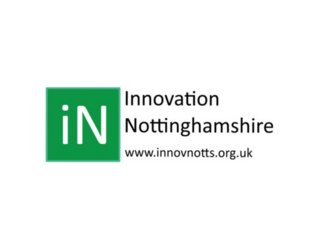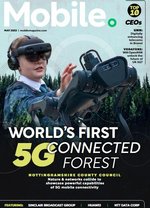Preparing future generations for a tech-enabled world

Nottingham is a big, bustling, trendy city. Despite this, though, the county it sits within contains areas with some of the poorest social mobility opportunities in the country. In other words, while it may not be as deprived as other areas in the country, up-and-coming generations in some parts of the county face major challenges accessing work and career opportunities.
To counteract this, founder of ISPB Nick Mellors performs an integral, endlessly valuable role across higher education institutions (as well as among other settings, such as the NHS, the private sector, and local and central government). As such, with over 30 years’ experience in public sector commercial services, Mellors is in a position to provide independent advice and widen the horizons of students who feel that their options are limited.
So, how did he become a part of the 5G Connected Forest project? “By accident is the simple answer,” Mellors grins.
“At ISPB, we also do business consultancy, and part of that is supporting bid writing for funding. I got a phone call from one of the partners of the project to say, ‘We've got this bid to write, would you be able to help us at all?’ and so I said, ‘Yeah, happy to pop over and take a look now’. By lunchtime I'd become a project partner. Ceren’s to blame for that ‒ she's very persuasive,” he adds with a twinkle in his eye.
Mellors then goes on to explain how, just 10 days into the project, COVID-19 hit and caused plans to be reshaped: “Through a contact at a local school, I was asked to do a talk during lockdown that got such a good response, that other colleges got in touch with me and I realised we had a legitimate programme on our hands. So from talking to students, I realised that there was a great appetite in colleges and schools to understand what this thing called 5G would mean for us, how it could be used, and how it was going to affect every single business sector ‒ and therefore every career ‒ that people entering the world of work are going to be involved in.”
As a result of this, Mellors has worked with over a thousand students across Nottinghamshire, highlighting the different facets of the 5G project, including the other technology 5G is enabling, such as unmanned aerial drones, robotic AI dogs, IoT, and AR/VR headsets.
“Knowing that this stuff is happening on your doorstep is a really powerful message, especially in communities that are often overlooked. When we talk with students about them being the first people in the whole country to take part in this programme and how Nottinghamshire might well have more 5G testbeds than any other county in the country; you can really see their eyes light up,” Mellors concludes.
For a county entrenched in traditional mining and rural communities, where wide-ranging career opportunities can be scarce, the introduction of a programme designed to showcase the role of 5G and other tech within businesses and careers has the potential to be transformational for future generations.
Read the full story HERE.







